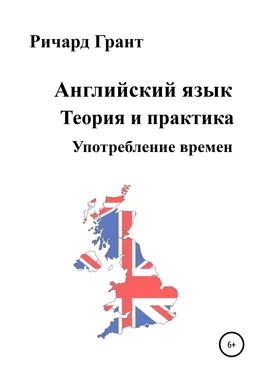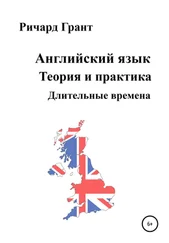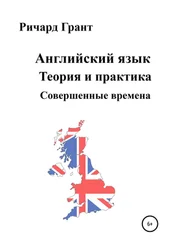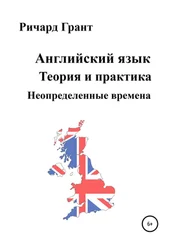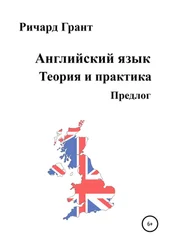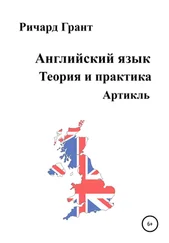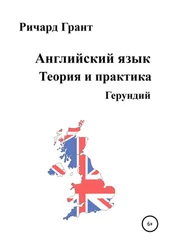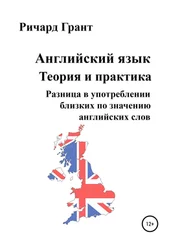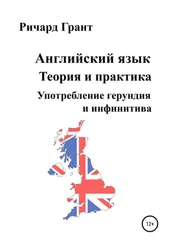Ричард Грант
Английский язык. Теория и практика. Употребление времен
Разница между The Present Continuous и The Present Simple
1. Present Continuous применяется для описания ситуаций и действий, которые говорящий считает временными. Present Simple описывает ситуации, которые говорящий воспринимает как постоянные.
Linda is working at the ice cream shop during summer. – Летом Линда работает в магазине мороженого. (когда лето закончится, Линда больше не будет работать в этом месте.)
Sam works as a manager at the ice cream shop. – Сэм работает управляющим в магазине мороженого . (это его постоянная работа)
2. Если мы описываем повторяющиеся действия, которые связаны с настоящим моментом, используем Present Continuous. А если с настоящим моментом они не связаны, употребляем Present Simple.
I'm speaking with my mom a lot these days. – В последнее время я часто говорю с мамой по телефону. (есть связь с текущим моментом)
I speak with my aunt who lives in New York twice a year. – Дважды в год я разговариваю со своей тетей, которая живет в Нью-Йорке. (нет связи с настоящим моментом)
3. Present Continuous описывает действие, происходящее в настоящий момент. Present Simple используется для описания фактов, которые остаются верными в любой момент времени.
Kathy is speaking with her father at the moment. – Сейчас Кэти говорит со своим отцом . (она говорит в настоящий момент времени, разговор будет закончен)
Kathy speaks English. – Кэти говорит по-английски. (она умеет говорить по-английски, это утверждение остается фактом в любой момент времени)
Упражнение 1
Раскройте скобки, употребляя глаголы в Present Continuous или в Present Simple.
1. I ( to take) my sister to school now. I ( to take) her to school every day. 2. He ( to work) in the centre of Chicago. 3. Tom ( to play) football on Saturday. 4. His father ( not to watch) TV at the moment. He ( to sleep) because he ( to be) tired. 5. I ( to sit) in the waiting room at the doctor’s now. 6. I ( not to know) what to give my brother for his birthday. 7. I often ( to go) to see my friends in the evening. 8. You ( to keep) to any special diet? – Well, I ( not to think) it ( to be) good to eat a lot of meat. I usually ( to have) meat only once a week. I ( to eat) lots of fruit and vegetables. 9. He ( to help) his father now. He ( to help) his father very often. 10. He ( to work) in the centre of Chicago? 11. He ( not to play) football every day. 12. Pat ( not to cook) dinner at the moment. She ( to talk) on the phone. She ( to cook) dinner every Monday. 13. I ( not to work) in my office now. 14. They ( to want) to publish this book in July?
Упражнение 2
Раскройте скобки , употребляя глаголы в Present Continuous или в Present Simple.
1. We sometimes ( to go) to the cinema or to a disco club on Sunday. 2. He ( to learn) English now because he ( to want) to get a better job. 3. At the moment they ( to go) to the river for a swim. They usually ( to go) to the river for a swim. 4. He ( not to work) in the centre of Chicago. 5. I ( to wear) a suit now. 6. I ( not to drink) coffee now. I ( to write) an English exercise. 7. Eric ( to talk) about his holiday plans, but Kenny ( not to listen) to him. He ( to think) about his new car at the moment. 8. She ( to think) he ( to drive) dangerously. 9. Andrew ( to get) up very early as he ( to live) far from school. He ( to be) never late. 10. The teacher ( to know) the girl often ( not to argue) with pupils. 11. She ( to play) the violin now. She ( to play) the violin every day. 12. They ( to read) a lot of books. 13. I ( not to wear) jeans now. 14. I ( not to drink) coffee in the evening. I (to drink) coffee in the morning.
Упражнение 3
Раскройте скобки , употребляя глаголы в Present Continuous или в Present Simple.
1. My friend ( to live) in Toronto. 2. He ( to understand) that he ( to eat) noisily, but he always ( to forget) about it. 3. It ( to be) six o’clock in the evening now. Victor ( to do) his homework. His sister ( to read) a book. His mother and grandmother ( to talk). 4. I (to think) she often ( to worry). 5. I ( to read) now. I ( to read) every day. 6. They ( to read) many books? 7. My friend ( not to like) to play football. 8. Your friend ( to do) his homework now? 9. My cousin ( not to live) in Toronto. 10. Who that man ( to be) who ( to stand) in the doorway? – You ( not to recognize) him? It ( to be) John, my cousin. 11. I ( to write) a letter to my grandmother who ( to live) in Toronto. I ( to write) to her very often. 12. Barbara’s boss ( to see) she ( to be) always late for work. 13. He ( to sleep) now. He ( to sleep) every night. 14. They ( not to read) many books.
Упражнение 4
Раскройте скобки , употребляя глаголы в Present Continuous или в Present Simple.
1. I ( not to read) now. 2. Your friend ( to go) to school in the morning? 3. The children ( not to sleep
Читать дальше
